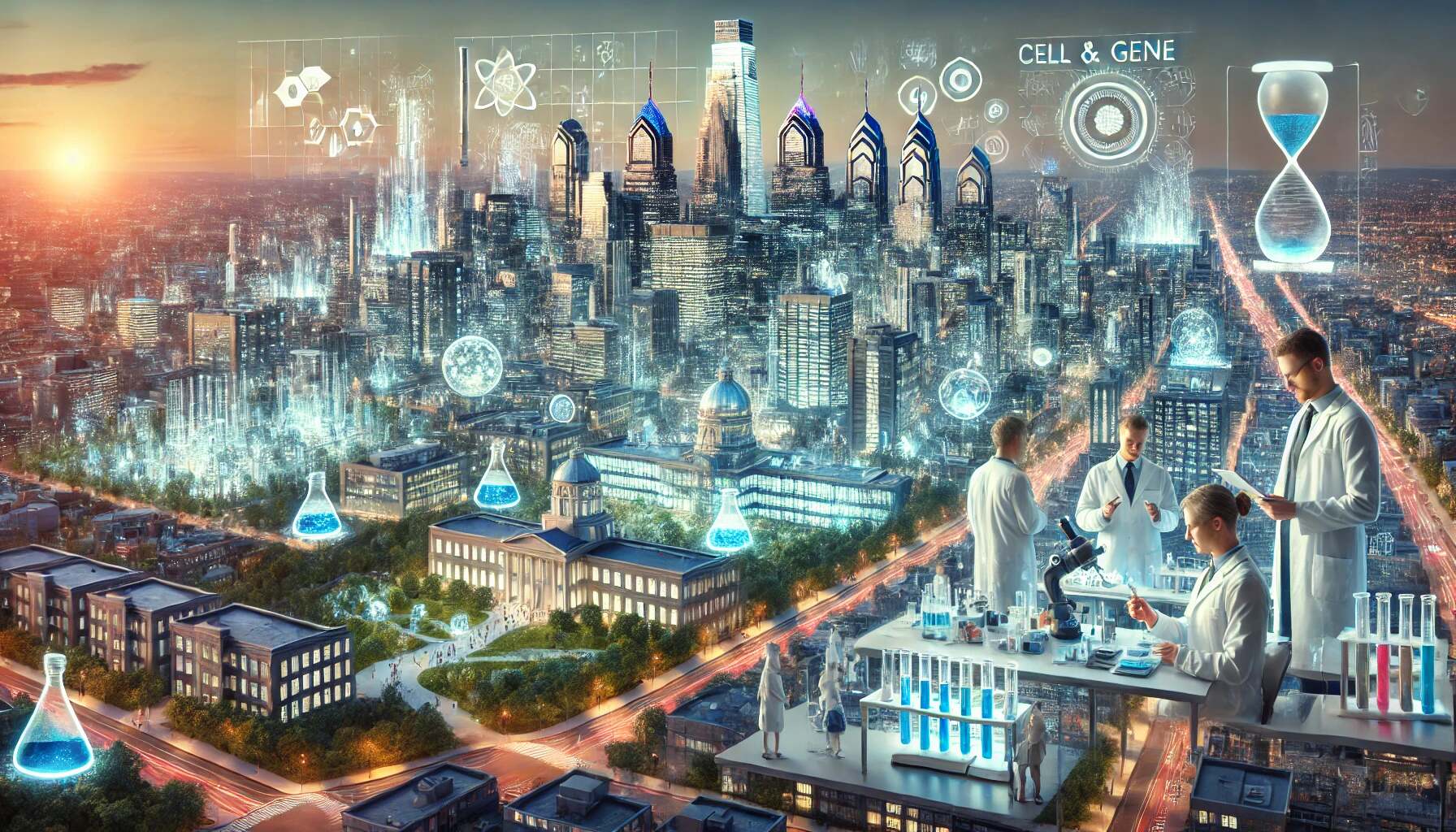20 February 2025 | Thursday | Reports

Philadelphia has long been known as a hub for history, education, and culture. But in recent years, the city has also solidified itself as a powerhouse in biotechnology and life sciences, attracting major investments and fostering groundbreaking innovations. With a growing concentration of biotech firms, top-tier research institutions, and a thriving startup culture, Philadelphia is making waves not only regionally but across the entire U.S. biotech landscape.
One of Philadelphia’s standout contributions to the global biotech industry is its leadership in cell and gene therapy. Home to nearly 10% of the world's cell and gene therapy companies, the city has been pivotal in advancing treatments for previously untreatable diseases. Companies like Adaptimmune Therapeutics and Carisma Therapeutics are at the forefront of immunotherapy and cell engineering, developing novel solutions for cancer treatment.
A major indicator of the city's prominence in this sector is the rapid expansion of clinical trials and the increasing number of FDA approvals originating from Philadelphia-based firms. Adaptimmune recently received accelerated FDA approval for Tecelra, marking a significant milestone in the commercialization of T-cell therapies for solid tumors.
Philadelphia’s biotech sector is not just about a few key players; it’s an interconnected web of startups, established firms, and research institutions. Here are some of the notable companies making a mark:
Legend Biotech – Recently announced plans to establish a new 31,000-square-foot R&D facility in Philadelphia, focusing on next-generation cell therapies.
Amicus Therapeutics – Specializing in rare and orphan diseases, Amicus is leading the charge in developing new treatments for lysosomal storage disorders.
Century Therapeutics – Using induced pluripotent stem cells (iPSCs) to create off-the-shelf immune cell therapies for cancer and autoimmune diseases.
Carisma Therapeutics – Pioneering chimeric antigen receptor macrophages (CAR-M) to enhance immune response against cancer cells.
Integral Molecular – A biotech company focused on antibody discovery and vaccine development, particularly in infectious diseases and oncology.
iECURE – Specializing in gene-editing therapies for rare genetic disorders, leveraging CRISPR-based technologies.
Immunome – Working on novel immune system-inspired therapies to target cancer and infectious diseases.
SFA Therapeutics – Developing microbiome-derived drugs for inflammatory and autoimmune diseases.
Vinta Bio – A contract development and manufacturing organization (CDMO) supporting the production of gene and cell therapy products.
These firms, along with hundreds of other biotech startups and industry veterans, are collectively reshaping the landscape of life sciences in the U.S.
In his second term, President Donald J. Trump has initiated several policies that could significantly impact Philadelphia's biotech sector. Notably, the establishment of the President’s Council of Advisors on Science and Technology (PCAST)aims to drive American innovation and competitiveness in critical and emerging technologies, including biotechnology. This initiative seeks to foster collaboration among industry, academia, and government, potentially benefiting Philadelphia's robust biotech ecosystem.
Additionally, the President's Make America Healthy Again Commission, chaired by U.S. Health and Human Services Secretary Robert F. Kennedy Jr., focuses on addressing the root causes of America's escalating health crisis. This includes prioritizing research on chronic diseases and empowering Americans through transparency and open-source data. Such federal emphasis on health research aligns with the innovative efforts of Philadelphia's biotech companies, potentially leading to increased support and funding opportunities for the region.
However, the administration's approach has introduced uncertainties within the biotech industry. The appointment of vaccine skeptic Robert F. Kennedy Jr. as a top health official has raised concerns about potential shifts in regulatory policies, which could affect the trajectory of biotech innovations. Despite these uncertainties, there is cautious optimism that the administration's broader pro-business stance may ultimately benefit the sector.
Overall, the Trump administration's policies present both opportunities and challenges for Philadelphia's biotech ecosystem, underscoring the importance of strategic navigation in this evolving landscape.
Since 2018, Philadelphia’s life sciences industry has attracted over $18.7 billion in investments, fueling job creation, infrastructure development, and technological advancements. With over 1,200 life sciences companies operating in the region, the biotech sector has become a key economic driver for the city and beyond.
Moreover, Philadelphia’s role in national biotech innovation has helped strengthen the U.S. position as a global leader in drug development and medical research. The city’s contributions to cell and gene therapy are setting the stage for revolutionary changes in healthcare, paving the way for more personalized and effective treatments for a wide range of diseases.
One of the key factors behind Philadelphia’s biotech success is its collaborative ecosystem, driven by research institutions like the University City Science Center and Penn Medicine. These institutions provide critical resources and funding opportunities for startups, ensuring that groundbreaking ideas are translated into viable medical solutions.
Government incentives and private sector collaborations have also played a crucial role in accelerating innovation. Initiatives supporting biotech entrepreneurs and fostering public-private partnerships have made the city an attractive destination for biotech investment.
With ongoing investments, new research breakthroughs, and a growing talent pool, Philadelphia is well-positioned to maintain and expand its leadership in biotech. Future growth areas include:
Expansion of manufacturing capabilities for gene and cell therapy products.
Increased venture capital funding for emerging biotech startups.
Advancements in AI-driven drug discovery, accelerating research timelines.
Philadelphia’s biotech boom is more than just a regional success story—it’s a testament to the city’s role in shaping the future of healthcare in the U.S. As investment continues to pour in and innovation flourishes, Philadelphia stands as a beacon of progress, influencing biotech developments nationwide and beyond.
WHITEHOUSE.GOV – Policies and initiatives impacting biotech
WSJ.COM – Regulatory shifts and industry implications
© 2026 Biopharma Boardroom. All Rights Reserved.